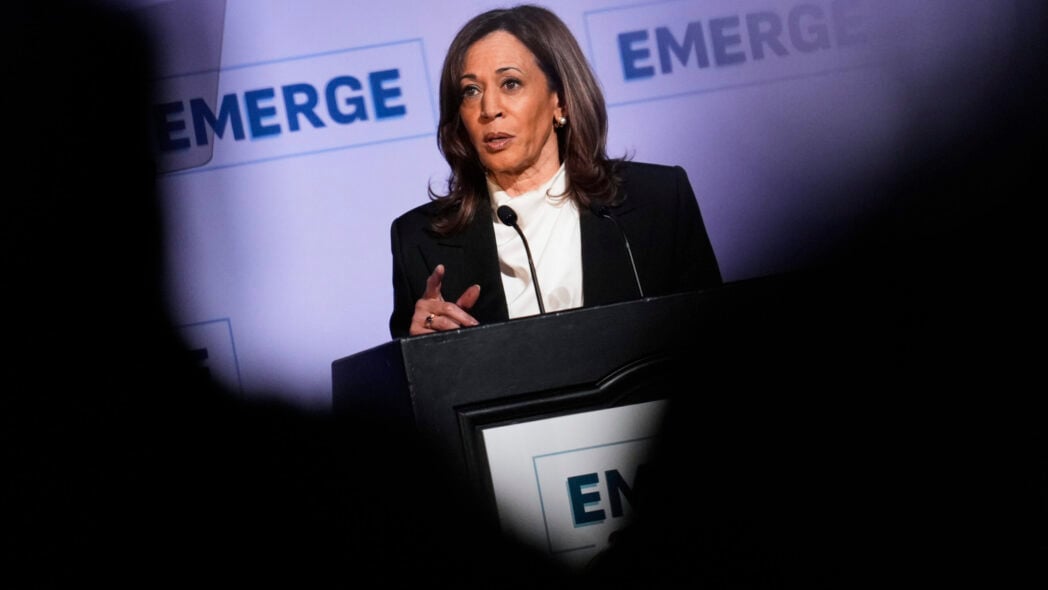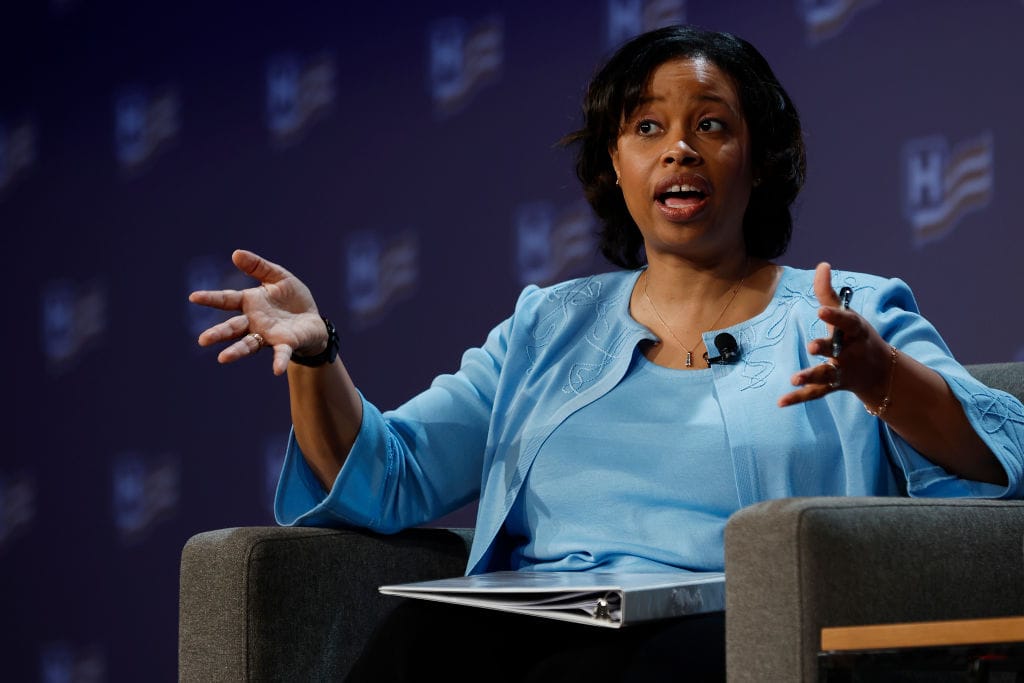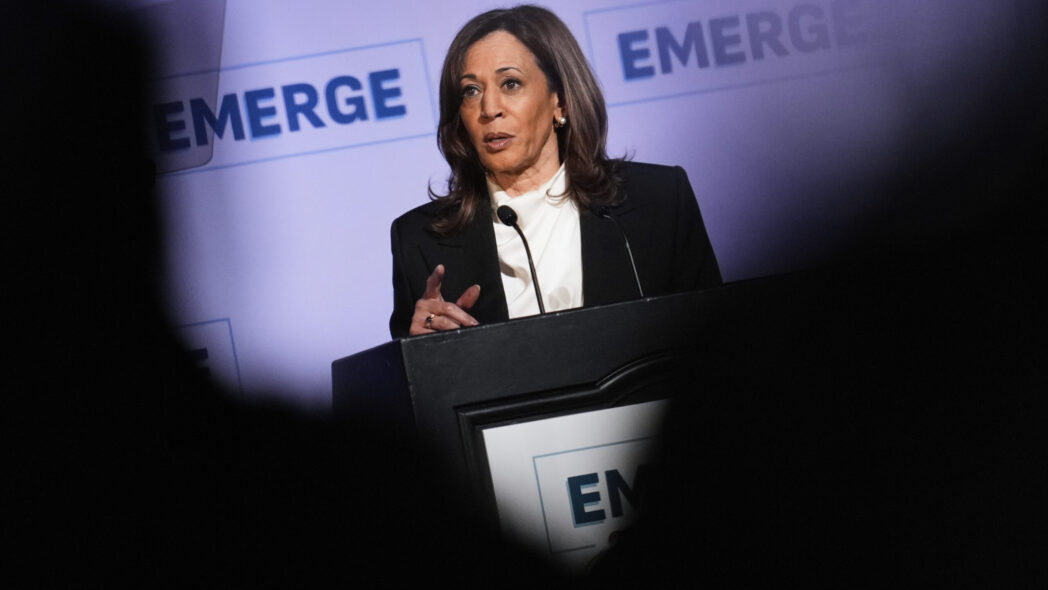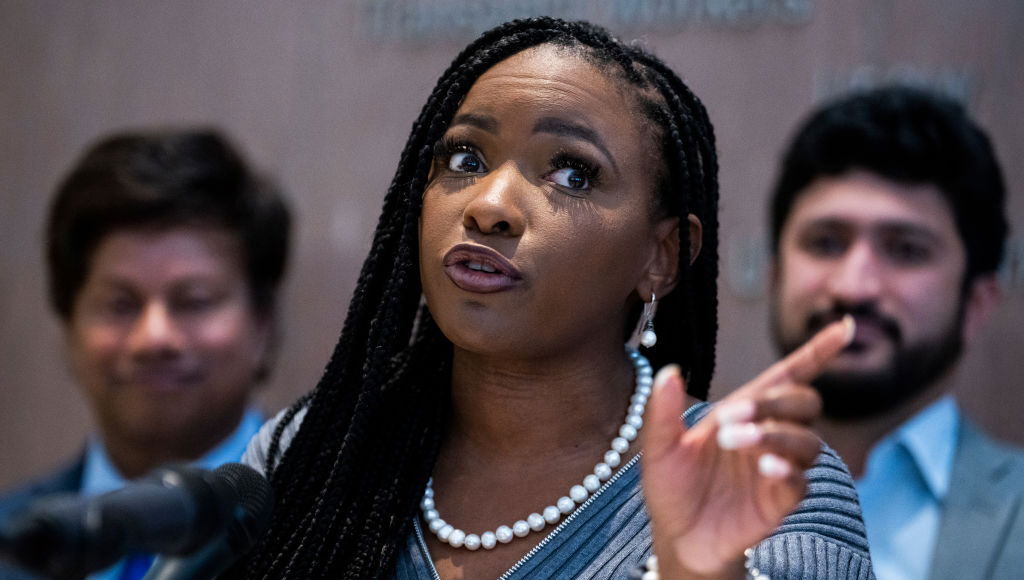After the U.S. Senate passed the “One Big Beautiful Bill Act,” President Donald Trump‘s sweeping legislative agenda that includes $3.8 trillion in tax cuts and border security funding, Democrats and advocates are continuing to sound the alarm about what they warn will result in devastating consequences for millions of Americans—particularly Black Americans—and their health care and other critical services.
The Senate’s version of the bill, if passed by the House of Representatives, would cut $930 billion in Medicaid and hundreds of billions more in food assistance, or SNAP, among other cuts, that critics say will have long-lasting and even deadly outcomes for Black and other vulnerable communities.
“With the passing of this destructive and rotten bill, Trump and GOP lawmakers have launched a direct attack on Black communities and the basic rights we fight for every day,” said Kristin Powell, executive director of Black to the Future Action Fund. “This is not just evil and corrupt policy – it’s a deliberate dismantling of progress. But we have a choice: we can grieve, or we can fight back.”
While some provisions within the “Big Beautiful Bill” may appeal to Americans, like no tax on tips and overtime pay, experts say the benefits of such tax savings won’t outweigh the economic pain and health risks of expected rising health care costs and closed hospitals as a result of the legislation—and the millions who will go uninsured as a result.
“Thanks to Senate Republicans, 17 million people will lose their health insurance,” said former Vice President Kamala Harris, who lost the 2024 presidential election to Trump last November. Harris, who also noted that energy bills will skyrocket by $400 a year as a result of climate spending cuts, said the Republican bill will hurt “working people across our nation,” all in an effort to “pay for $1 trillion in tax cuts for billionaires.”

“If you would have told me that the Senate was going to work on a bill to be worse than what the House did, I would have told you you were a liar. I can’t really say what the worst parts of it are,” said U.S. Rep. Jasmine Crockett, D-Texas.
The congresswoman warned, “People will go without health care, which means that people will die. People will go without food.”
Crockett told theGrio, “You’ve got states whose budgets are going to be rocked. I mean, the ripple effects are going to be disastrous. It’s going to be felt far and wide.”
Critics are most concerned about the impact of the bill’s nearly $1 trillion cut in Medicaid. Though the Trump White House and Republicans claim the cuts will exclusively focus on “waste, fraud, and abuse,” those opposing the bill argue that to meet the level of cuts outlined in the bill, millions of eligible Americans who need it will ultimately lose their coverage.
“There are a lot of racial disparities in our health care outcomes that are beyond whether or not people have insurance, but it is a fundamental part of being able to have better health outcomes,” explained Chiquita Brooks-LaSure, who served as President Joe Biden’s administrator at the Centers for Medicare and Medicaid Services—and the first African-American nominated to the position.
After the bill’s passage in the Senate on Tuesday, President Trump said it would “strengthen” Medicaid; however, Brooks-LaSure told theGrio that the additional work requirements for Medicaid in an effort to rid out fraud and waste are ultimately “creating a series of barriers for everybody to take care of a small number of people who are not behaving the way they should.”
Cuts to Medicaid are expected to also balloon health care premiums for those insured under the Affordable Care Act, or Obamacare, by as much as $900 on average per person. For those privately insured by their employer, premiums would increase by an estimated $300, depending on their income level.

In fact, the former Biden official said her administration noticed the “vast majority” of fraud and abuse is in providers’ “billing programs improperly”—not Medicaid recipients.
The Biden administration tightened rules for agents and brokers to address the issue; however, Brooks-LaSure noted the Trump administration “rolled back some of the staff and the efforts that we took to ensure more accountability.”
In an effort to make a moral appeal against the budget and tax bill, U.S. Senator Raphael Warnock, D-Ga., said during a Monday floor speech, “A budget is not just a fiscal document, a budget is a moral document. Show me your budget and I’ll show you who you think matters and who doesn’t.”
Warncok continued, “If this awful budget were an EKG, it would suggest that our nation has a heart problem and is in need of moral surgery.”
The pastor and senator said the tax cuts in the “Big Beautiful Bill” are like Trump’s 2017 tax cuts, which experts concluded primarily benefited the wealthiest Americans and corporations compared to the middle and working class. He added, “Like most horror movies, the sequel tends to be worse.”
As the “One Big Beautiful Bill” makes its way through the House, advocates are urging the public to continue voicing their opposition.
“This is not the end. We’ve been here before, and just like our ancestors, we will keep rising – stronger, louder, and more united than ever,” said Powell of Black to the Future Fund.
“We must continue to come together in our communities to build Black political power and develop bold, long-term strategies to win,” she added.
As the bill makes its way back to the House, Minority Leader Hakeem Jeffries said, “the one big ugly bill” is a “disgusting piece of legislation.” The congressman vowed that Democrats would “do everything we can to stop it.”







